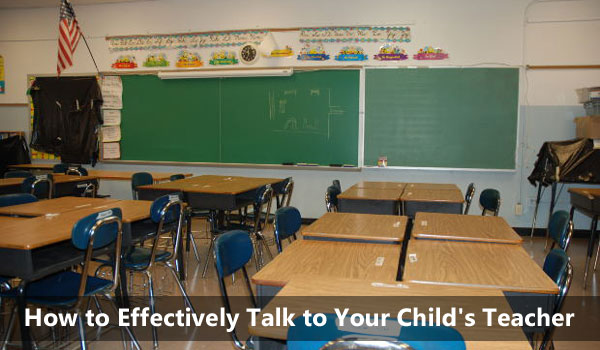As I’ve stated before, I firmly believe in public education. But, parent involvement is necessary. Parents and teachers must work together to provide the best education, one that is as individualized as possible. Crunchy moms are opinionated, and tend to look at everyday matters from new perspectives. Clear communication with the classroom teacher is essential if you’d like your views taken seriously.
Because teaching is partly an art, it can be very personal. You might not be able to change somethings about how a teacher runs her classroom, but you can always discuss her choices and ask about alternatives. However, since teaching is so personal, you will need to make sure you are not coming across as attacking your child’s teacher. Most of us become defensive and stubborn when faced with an attack.
Here are some tips for an effective talk with your child’s teacher:
- Don’t go over the teacher’s head. Unless there is an extreme case, talk to the teacher directly. No one likes to be called in by a boss to hear about mistakes or complaints.
- No email. If your concern is serious, make time to meet in person, or at least talk on the phone. Email is convenient, but leaves too much room for misunderstandings.
- Teachers are human, too. Its true, teachers make mistakes. We loose our temper. We become overwhelmed. We overlook an obviously sensitive area. Like anyone else, we often just need someone to politely point out the mistake.
- Have a clear purpose for the meeting.
- Let the teacher know in advance. No one likes to be taken by surprise, so the advanced warning allows the teacher to be ready to respond to your concern fully. This is especially important if the teacher will need to collect materials to fully answer your questions, such as samples of student work, calculating a grade, or talking to other teachers.
- Be assertive, but polite.
- Keep track of what is said. When you meet, take notes about what the teacher says. There isn’t a need to nit pick over exact wording, but it is especially important to note any actions the teacher agrees to take, including when.
- Be proactive. If you want to hear a progress report on your child every week, then email or call to ask. Don’t ask the teacher to initiate that conversation every single week. Teachers have many students (some of us high school teachers have over 100!) and many other work responsibilities, which is one reason why schools don’t mandate weekly progress reports. This information is important to you, so take that burden off the teacher and initiate.
- Do your research. First, check all the local resources you have, such as the teacher’s handouts or web site and the school handbook. Answers you seek might be right there. If not, then do research, more broadly about the change you’d like to see take place.
- Offer help. A teacher might want to try something you propose, but might be swamped with other responsibilities. Offer your time. You can even suggest, “If I volunteer to help with (enter time consuming, menial task), would it give you time to look into (enter your request)?”
- Know your rights. Especially concerning any type of special education situation.
- Come prepared to not know the whole story. Even in ideal circumstances, there are two sides to every story, and often what is relayed from a student to parent is skewed. Be prepared to share your concerns, and then allow the teacher to share her version.
- You don’t have to go alone. You can request another adults’ presence at the meeting, such as an administrator, adviser, or guidance counselor.
- Know when to move up. While you shouldn’t start over the teacher’s head, there is a point when you need to move up the food chain to the principal, superintendent, guidance counselor, special education director, or school board.

